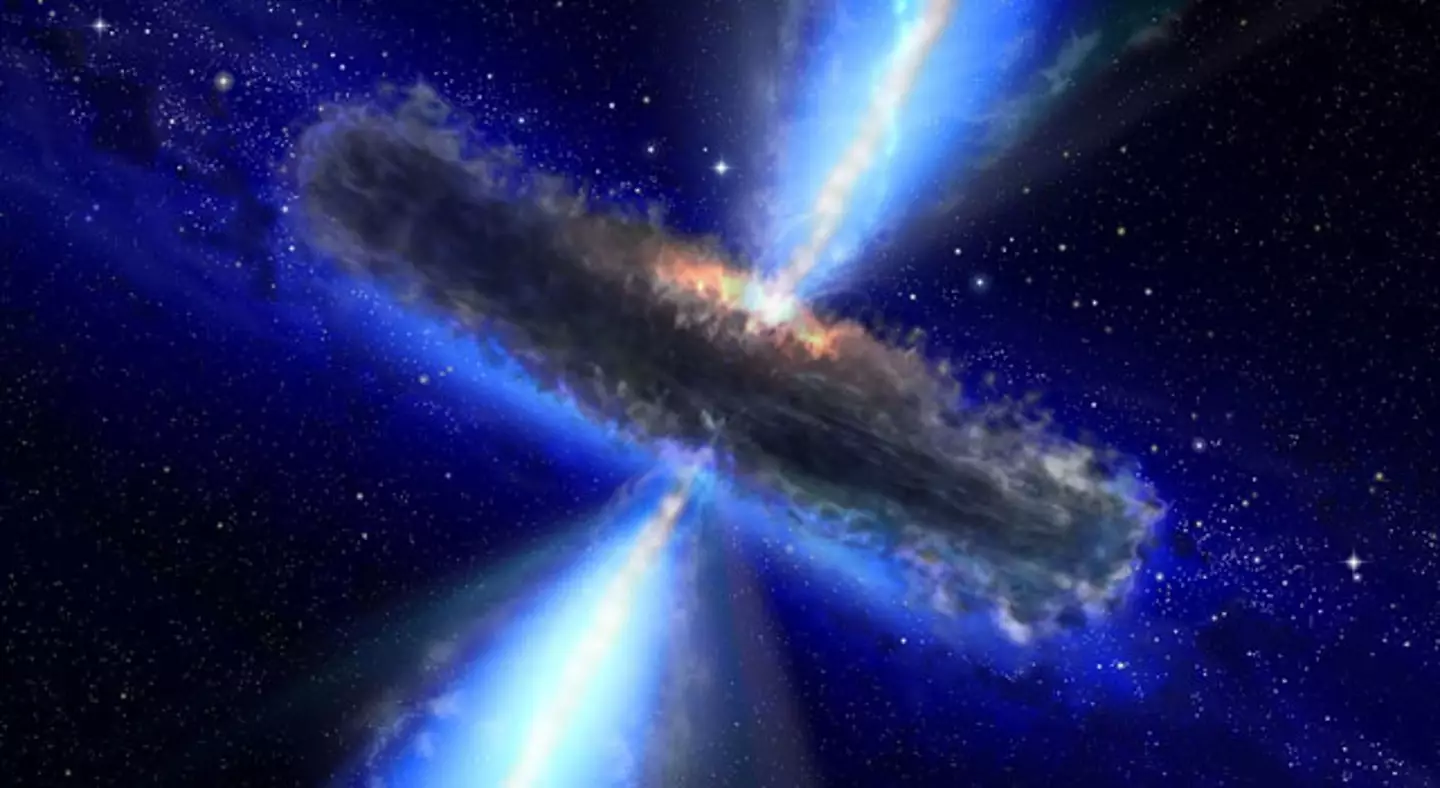
Scientists have confirmed that the largest body of water in the known universe is shockingly 12 billion years old.
Two teams of astronomers have discovered the largest and farthest reservoir of water ever detected in the universe.
The body of water is notably significantly larger than all of the water on planet Earth. And according to the scientists, it is the equivalent to 140 trillion times all the water in the world's ocean.
Advert
There is little chance you would spot it looking through your own telescope however, as the body of water surrounds a huge feeding black hole called a quasar, which is more than 12 billion years away.
Pretty mind-bending, right?
The observations made by the scientists have revealed a time where the universe was just 1.6 billion years old.
Matt Bradford, a scientist at NASA's Jet Propulsion Laboratory in Pasadena, California, spoke of the discovery and said it showed that water can be found throughout the universe.

"The environment around this quasar is unique in that it's producing this huge mass of water,” he said. "It's another demonstration that water is pervasive throughout the universe, even at the very earliest times."
Quasars are considered massive celestial objects and emit large amounts of energy. Gas and dust falling into a supermassive black hole, that are at the centre, emit electromagnetic radiation across the entire electromagnetic spectrum.
Both groups of astronomers studied a particular quasar called APM 08279+5255, which harbors a black hole 20 billion times more massive than the sun and produces as much energy as a thousand trillion suns. So a fair bit.
Bradford’s team was able to get more information about the water, most notably its incredible mass as they detected several spectral signatures of the water.

Prior to this discovery, astronomers had never found water vapor present this far back in the early universe. There is water elsewhere in the Milkyway - however, most of it is frozen in ice.
Astronomers are hoping to learn more about the distant universe and those in the study proposed a 25-meter telescope to be built in the Atacama Desert in Chile.
In 2020, the telescope’s name was changed from Cerro Chajnantor Atacama Telescope (CCAT) to Fred Young Submillimeter Telescope (FYST) after Cornell alumnus Fred Young supported the telescope for about 2 decades with 16 million dollars.
But due to lack of funding, the telescope plan has sadly been put on hold.